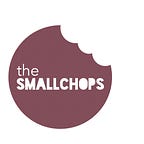What’s the fuss about Senegal?
What’s the Chop?
Senegal has done a remarkable job containing coronavirus.
Tell me more.
After COVID-19 hit Europe and the rest of the world, and everyone realised Africans were not immune (thanks to our many ‘timely’ visitors) people were worried about the impact it would have on Africa — a combination of genuine concern about weak health infrastructure across the continent; and that standard narrative of ‘the poor helpless Africans’. Well, Senegal is transforming the narrative and setting the pace for dealing with this pandemic.
How so?
They were very quick to react from the onset. As soon as the virus hit Europe, it shut its borders and airports. At the same time, the government imposed a nationwide lockdown and a dusk-to-dawn curfew like other countries in the region. They also rolled out mass testing, contact tracing and isolation facilities. These things are standard, yeah, but it’s not so much what they are doing; it’s how they are doing it:
1. Senegal is developing a one-dollar quick diagnostic kit, which will take 10 minutes to administer. This kit uses the same technology as a home pregnancy test, except in this case, you take a swab of saliva (or blood) and ten minutes later, voila! you have your results. Considering that current testing methods are rare, expensive, slow on the turnaround, and can only be carried out in hi-tech labs, this is a huge deal. The kit is expected to be rolled out in June, and they have plans to produce 8 million kits a year. They’ll be offered directly to governments, and international organisations like the World Health Organization (WHO), and Global Alliance for Vaccines and Immunisation (GAVI).
2. If you thought Liverpool forward Sadio Mane was the only ‘Made in Senegal’ brand, think again. Senegal is also developing homegrown 3D printed ventilators, joining similar efforts in other parts of the world. The ventilators can be controlled remotely, and are also designed to work autonomously, so that they can recognise when patients are struggling to breathe, and respond. The researchers created a working prototype in 10 days and made most of the components themselves. Plus — the best part — they are mega affordable, at $66 dollars a pop, compared to imported ones which are about $16,000 each.
3. Senegal hasn’t been spared from the virus — they’ve had 933 confirmed cases — but they have the 3rd highest rate of recovery in the world, ahead of countries like the US and France, and they haverecorded only 9 deaths. This success is attributed to how intense they have been about mass testing, contact tracing and isolation — basically, everywhere you go, your fever is checked. When someone tests positive, everyone who has been in contact with the patient is taken to isolation. And though it’s a bit controversial, they’ve started tracking the data on people’s phones for contact tracing. Literally, no stone left unturned.
Your Takeaway.
Coronavirus may have the world redefining development, because as countries closely watch each other during this time, we have a trailblazer from the ‘primitive’ continent of Africa leaps and bounds ahead of many ‘developed’ countries.
A Ray of Sunshine
In Ghana, MPharma (a Ghanaian health tech startup) is planning to equip and repurpose private testing labs into COVID-19 testing centres; and in Nigeria, a biotech start-up, 54Gene, just raised $15m!
Thank you to Annette Abena for upping our weekly dose of sunshine!
Get the chops directly in your inbox — subscribe to our weekly newsletter.
